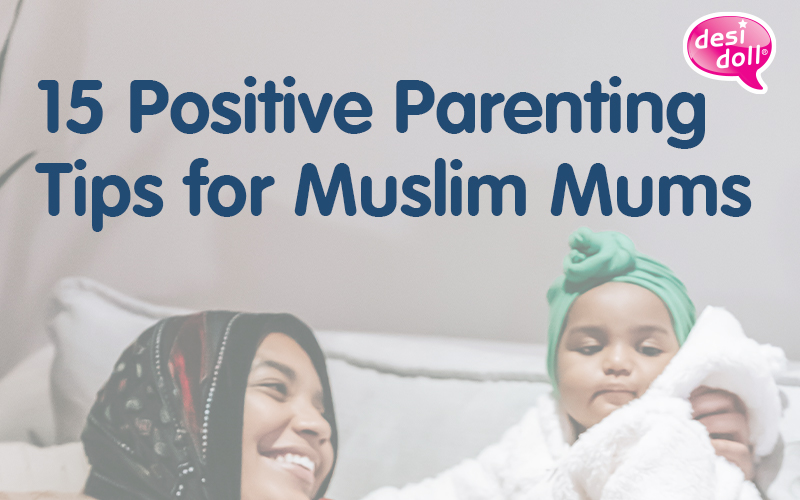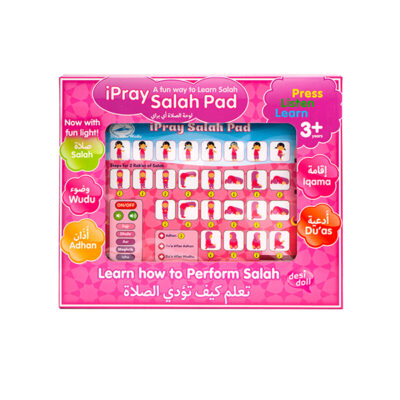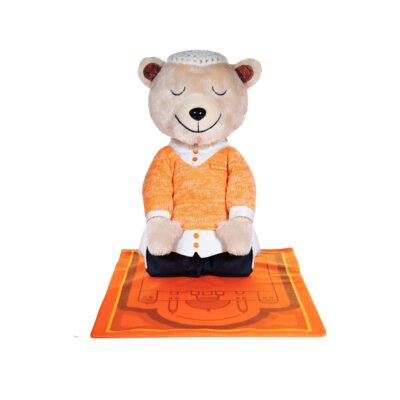Positive parenting is about developing a strong and deep relationship with our children based on mutual respect and communication. It’s all about teaching children to be better human beings through inspiration and positive reinforcement.
An important aspect of positive parenting is to treat our children as individuals, not as our property. We should also aim to reason with them rather than being authoritative (“because-I-said-so”!).
Parenthood is spread over a lifetime so it’s hard to generalise it. It’s so different in every stage of a child’s life. But there are certain principles which I’m going to talk about here which can be applied to kids of all ages.
Following are some positive Islamic parenting tips:
1. Always stick to the truth
Children learn by watching their parents. We must be very careful never to tell any lies. We must always speak and encourage the truth.
A lot of mothers scare their children by saying, ‘the monster will come if we don’t hurry’. Or say I’ll give you a sweet if you come with me now, but later, you don’t keep your word! It’s important not to tell them any lies (including false promises) from an early age so they learn that lying is never an option. A lot of mothers scare their children using the father as a threat; it’s not right.
There are some things which we can’t tell kids when they’re young e.g.
- How are babies born?
- Why they can’t watch MA (mature audience) TV
If the truth is inappropriate for their age, its best to tell them the truth, that when they’re older (or quote an age), you will tell them. A lot of people make up fake stories of how babies are born from trees. It doesn’t matter how big or small a lie is, it shouldn’t be told – period.
2. Introduce Islam in a fun way
Many of us wonder how to be a good mother in Islam, and raise our children well. It’s so important to introduce our kids to our religion as soon as possible. The best way to do so is to find entertaining ways so they can have fun while learning about Islam. The Quran Cot Mobile is a great way to make them familiar with the sound of Quranic verses from the earliest ages. Babies can hear Quran even when they’re in the womb – so we should familiarise them before they are born. After they’re born you will see how the enjoy the familiarity of the Quranic words and the calming effect it can have.
Also, encouraging good night time routines from the youngest of ages. Encouraging children to say the dua’s at bed time by using My Original Dua Pillows are an amazing way to familiarise and build good habits. Press the buttons on the buttons on the pillow to hear the Sunnah of what to recite at bedtime, in a soothing and gentle voice that children will really bond with. The Pillows also light up, which is both fun, and reassuring for the child, as it can act as a night light, going off automatically after 15 minutes.
The Desi Doll Company have an amazing range of toys that make learning about Islam fun for ages 0+ (Moon & Stars Quran Cot mobile), all the way to 10 yrs (interactive Salah pads).
3. Talk to them
We must talk to our kids as if they’re respected individuals. Let’s talk to them how we talk to adults. Let’s not assume they’re too young to understand. Let’s keep talking to our children about different things in life. Tell them about our day, what is going to happen, where we’re going and so on… They will learn so much by just hearing us talk.
An important tip is to talk to them at their level. We can actually sit down and speak to them. They will then be able to hear us better and it shows empathy, respect and compassion.

4. Keep it pleasant
Our kids will spend at least two most important decades of their lives in our home. So we must try to keep it pleasant. They should always find home a safe haven. Following are some tips:
- Keep voice low
- If they scream, whisper
- No yelling
- Keep parent fights in the bedroom
- When they get on your nerves, take a break
- Parents should go out and take a break in turns
Parents must be on the same side. Even if we don’t agree with our partner, let’s just keep quiet. Finding conflict between parents can be monopolised or misused by children. It’s also the number one cause of an unpleasant home.
5. Positive reinforcement
It’s always best to tell them about all the good things that’ll happen if they listen to us rather than frightening them with the dark consequences if they don’t. Remember, in life, it’s always best to look at the glass half full rather than the glass half empty.
6. Adjust children into our lifestyle
It’s best to try to adjust kids into our way of living rather than changing our lifestyle completely for them.
If continuing with our routine is difficult, let’s try to find solutions. e.g. if we live in extreme weather, invest in good gear. If we love trekking, invest in a jogger (stroller) so you can run with your baby. Let’s find solutions so children can be adjusted in our routine.
7. Introduce good habits at an early age
The early years of a human being’s life are vital. If we want to introduce anything important in life, we should do it when they’re babies. Some examples are: Reading, drinking water, meeting people, eating veggies and story-telling.
8. Be loving yet firm
We must love them with our words, cuddles and kisses but keep a firm tone when we need them to listen to us. While disciplining them, let’s keep our word and be consistent and firm.
If they do something wrong, let’s not protect them from facing consequences. All big crimes start like this. Love them at all times but do not protect them from the consequences of their mistakes. Sometimes we need to be cruel to be kind.
Let’s do what is best for the children and not worry about what they think of us today. What is important is what they will think of us ten years later.

9. Take out time for ourselves every day
It’s true that we compromise a lot in our life for children. But we must hold on to the things which are really important for us in our life. We must figure out how to accommodate them despite children.
If we give up everything we love for them, it will make us bitter and cause resentment sooner or later. We should try to work out a routine to include things we are passionate about whether it’s traveling, socialising, sports, or any other hobbies.
10. Remember the goal
Every step we take with our child is to prepare them to survive without us. To make them strong and independent instead of weak and dependent on us always.
11. Be fair
We must treat all our kids equally and not give preferential treatment to them. Let them stand on their own.
12. Stick to the rules
Even though we are friendly with our kids, they should know that rules are rules and cannot be broken. For example:
- In the car seat, they must wear seatbelts no matter what
- There would be no phones at the dining table
- They can’t touch parents phones/laptops/documents
- They can’t watch TV when the family is together
- People before technology

13. Be a friend
Parenthood doesn’t have to be so serious. It can be a lot of fun too. We should try to befriend our kids so we can enjoy and have fun with them. Let’s talk, be funny and enjoy with kids as we do with our friends.
Life is too short to not enjoy little moments with our loved ones. Laugh at your child’s jokes to make them feel good. It will help them come out with their true personality. We will be parents for a long time, so why not make it enjoyable for both of us.
14. Master the art of distraction
If kids are behaving badly, it’s sometimes best to distract them than to get angry and argumentative. It works great for babies too when they’re creating a fuss. Basically engage them in a diversion or play game with them so they change their course of action.
15. Calm ourselves first
Children are very intuitive. If something is hurting us and we’re upset, they get the vibes instantly and feel upset too. If something is bothering us, it’s best to take a moment, calm ourselves before interacting with kids.
If we are disturbed, we tend to take it out on kids unfairly. So it’s best to give ourselves a time-out than overreacting to a child’s transgression. Quranic recitation like Surah Taha & Surah Ad-Dhuha are known to relieve anxiety.
Please feel free to comment if you feel anything else should be mentioned too. Would love to hear from you.





children (no matter) should be belived and supported if they tell the mother about a traumatic incident instead of saying that its thier overactive imagination or just a nightmare as (i) the child would never tell thier parent unless they are really sure and (ii) no child would lie about something very serious
Jazakallah khairan
Jazakallah khairan